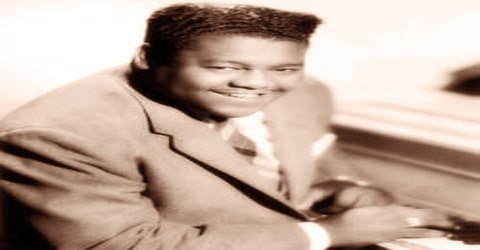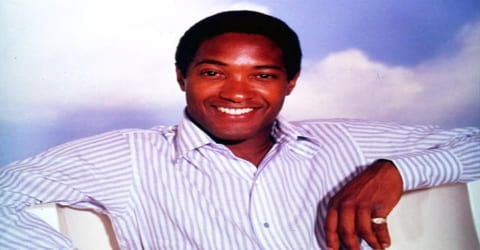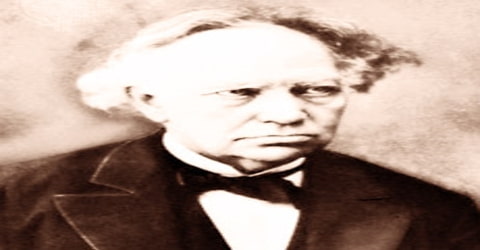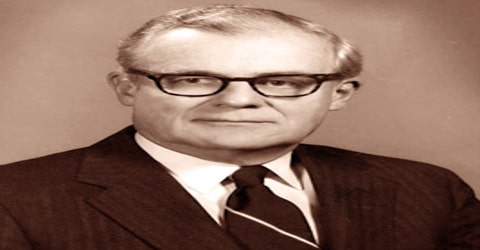Biography of Fats Domino
Fats Domino – American pianist and singer-songwriter.
Name: Antoine Domino Jr.
Date of Birth: February 26, 1928
Place of Birth: New Orleans, Louisiana, United States
Date of Death: October 24, 2017 (aged 89)
Place of Death: Harvey, Louisiana, United States
Occupation: Singer-songwriter, Musician
Father: Antoine Caliste Domino (1879–1964)
Mother: Marie-Donatille Gros (1886–1971)
Spouse/Ex: Rosemary Domino (m. 1947–2008)
Children: Adonica Domino, Anatole Domino, Andre Domino, Andrea Domino, Anola Domino, Antoine III Domino, Antoinette Domino, Antonio Domino
Early Life
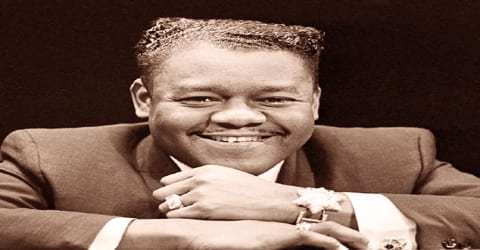
An American singer and pianist, a rhythm-and-blues star who became one of the first rock-and-roll stars and who helped define the New Orleans sound, Fats Domino was born on February 26, 1928, and raised in New Orleans, Louisiana, the youngest of eight children born to Antoine Caliste Domino (1879–1964) and Marie-Donatille Gros (1886–1971). The Domino family was of French Creole background, and Louisiana Creole was his first language. One of the pioneers of rock and roll music, Domino sold more than 65 million records. Between 1955 and 1960, he had eleven Top 10 hits. His humility and shyness may be one reason his contribution to the genre has been overlooked.
During his career, Domino had 35 records in the U.S. Billboard Top 40, and five of his pre-1955 records sold more than a million copies, being certified gold. His musical style was based on traditional rhythm and blues, accompanied by saxophones, bass, piano, electric guitar, and drums. Through it all, his basic approach rarely changed. He may not have been one of early rock’s most charismatic, innovative, or threatening figures, but he was certainly one of its most consistent.
Domino became popular with his first release, ‘The Fat Man’, and later earned widespread prominence with singles like ‘Ain’t That a Shame’ and ‘Blueberry Hill.’ Born in a musical family, he learned to play the piano at seven, and by the time he was ten, he had begun performing as a singer and pianist. He started playing the piano for bandleader Billy Diamond, who gave him the nickname ‘Fats’. After signing with Imperial Records, he released ‘The Fat Man’, which he co-wrote with Dave Bartholomew. The single peaked at the second position on the R&B charts and created a record by becoming the first rock ‘n’ roll song to sell a million copies. He continued to churn out several hits with his distinctive style of piano playing and melodious voice. Despite his popularity, he faced racial discrimination on several occasions. After he started experiencing health problems in 1995, he stopped touring and attended local events only. Later on, he also stopped recording and preferred to live off the royalties from his earlier recordings.
Childhood, Family and Educational Life
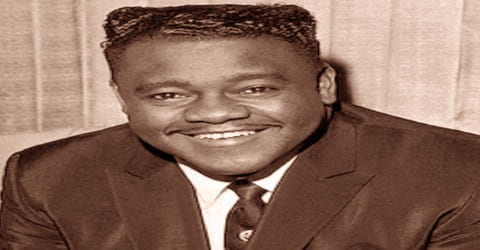
Fats Domino, by name of Antoine Domino, Jr., was born on February 26, 1928, to Antoine Caliste Domino and Marie-Donatille Gros. His father worked as a part-time violinist at a racetrack. He had seven siblings, all older to him. He grew up in New Orleans, Louisiana. He was of French Creole descent.
Domino attended the Louis B. Macarty School until the fourth grade, leaving to start work as a helper to an ice delivery man. When he was a young boy, his brother-in-law Harrison Verret taught him to play the piano and introduced him to the New Orleans music scene. Fats Domino started performing as a singer and pianist at the age of ten, and when he was 14, he started performing in bars.
Personal Life
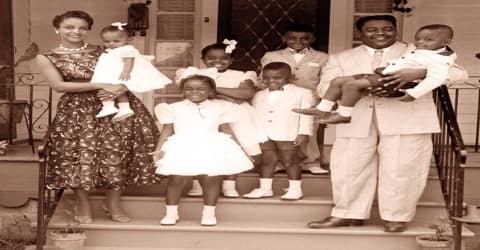
Fats Domino married Rosemary Hall in 1947 and the couple was happily married until her death in 2008. The couple had eight children: Antoine III, Anatole, Andre, Antonio, Antoinette, Andrea, Anola, and Adonica. Even after his success, he continued to live in his old neighborhood, the Lower Ninth Ward, until after Hurricane Katrina, when he moved to a suburb of New Orleans.
As Hurricane Katrina hit New Orleans in August 2005, Domino chose to stay in his house with his family as his wife was very ill. His house was heavily flooded and he was rumored to have died in the hurricane. Someone even wrote the message ‘RIP Fats’ on the walls of his house, and his house was vandalized. However, the rumors were unfounded as a Coast Guard helicopter had rescued him and his family. In January 2006, his home was renovated.
During his career, four major riots occurred at his concerts one was on November 2, 1956, at the concert in Fayetteville, North Carolina. While police used tear gas to control the unruly crowd, Domino had to jump out of a window and was slightly injured.
Career and Works
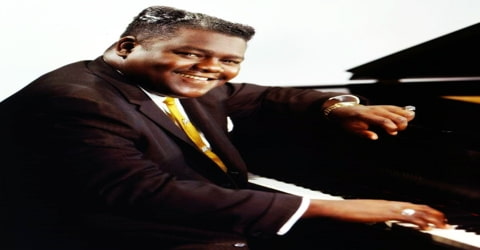
By age 14, Domino was performing in New Orleans bars. In 1947, Billy Diamond, a New Orleans bandleader, accepted an invitation to hear the young pianist perform at a backyard barbecue. Domino played well enough that Diamond asked him to join his band, the Solid Senders, at the Hideaway Club in New Orleans, where he would earn $3 a week playing the piano. Diamond nicknamed him “Fats” because Domino reminded him of the renowned pianist’s Fats Waller and Fats Pichon, but also because of his large appetite.
In 1949, Fats Domino signed a contract with Imperial Records and was paid based on the sales of records. He co-wrote his first song ‘The Fat Man’ with producer Dave Bartholomew. The song was an immediate hit. Motivated by the success, he released several more hit songs with Bartholomew.
Domino’s first recording, “The Fat Man” (1950), became the first of a series of rhythm-and-blues hits that sold 500,000 to 1,000,000 copies. His piano playing consisted of simple rhythmic figures, often only triad chords over a boogie pattern, forcefully played and joined by simple saxophone riffs and drum afterbeats (accents in a measure of music that follow the downbeat). These accompanied the smooth, gently swinging vocals he delivered in a small, middle baritone range, with even dynamics and a slight New Orleans accent, all of which made Domino one of the most distinctive rock-and-roll stylists.
His first pop ‘Ain’t That a Shame’ reached the Top Ten Billboard pop singles chart in July 1955. The cover version of the song by Pat Boone reached number 1. In his career, he had 37 Top 40 singles, but none could make it to the top of the Pop chart. By that time he also started earning $10,000 a week.
While Domino’s own recordings were done for Imperial, he sometimes sat in during that time as a session musician on recordings by other artists for other record labels. Domino’s rolling piano triplets provided the memorable instrumental introduction for Lloyd Price’s first hit, “Lawdy Miss Clawdy”, recorded for Specialty Records on March 13, 1952, at Cosimo Matassa’s J&M Studios in New Orleans (where Domino himself had earlier recorded “The Fat Man” and other songs). Dave Bartholomew was producing Price’s record, which also featured familiar Domino collaborators Hardesty, Fields, and Palmer as sidemen, and he asked Domino to play the piano part, replacing the original session pianist.
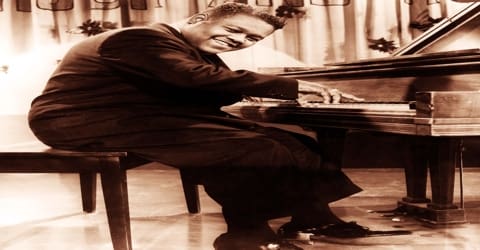
In November 1955, his debut album ‘Carry On Rockin’ was released; it included his hit songs and some tracks that were not yet released as singles. The album was reissued as ‘Rock and Rollin’ with Fats Domino’ in 1956 and reached No. 17 on the Billboard Pop Albums chart. In 1956, his recording of ‘Blueberry Hill’ became a smashing hit. It was his biggest hit, selling more than 5 million copies worldwide in 1956 and 1957. The song was subsequently recorded by Elvis Presley, Little Richard, and Led Zeppelin. Some 32 years later, the song would enter the Grammy Hall of Fame.
Domino had further hit singles between 1956 and 1959, including “When My Dreamboat Comes Home” (Pop number 14), “I’m Walkin'” (Pop number 4), “Valley of Tears” (Pop number 8), “It’s You I Love” (Pop number 6), “Whole Lotta Lovin'” (Pop number 6), “I Want to Walk You Home” (Pop number 8), and “Be My Guest” (Pop number 8). He appeared in two films released in 1956: Shake, Rattle & Rock! and The Girl Can’t Help It. On December 18, 1957, his hit recording of “The Big Beat” was featured on Dick Clark’s American Bandstand. He was also featured in a movie of the same name.
In 1956, Domino was cast in two films ‘Shake, Rattle & Rock!’ and ‘The Girl Can’t Help It’. His hit song, ‘The Big Beat,’ was included in Dick Clark’s 1957 film, ‘American Bandstand’.
In November 1957, Domino appeared on the Ed Sullivan TV program; no disturbance accompanied this performance. In the same year, the article “King of Rock ‘n’ Roll” in Ebony (magazine) featured Domino who said he was on the road 340 days a year, up to $2,500 per evening, and grossing over $500,000; Domino also told readers that he owned 50 suits, 100 pairs of shoes and a $1,500 diamond horseshoe stick pin.
Domino had a steady series of hits for Imperial through early 1962, including “Walking’ to New Orleans” (1960, Pop number 6), co-written by Bobby Charles, and “My Girl Josephine” (Pop number 14) in the same year. He toured Europe in 1962 and met the Beatles who would later cite Domino as an inspiration. After returning, he played the first of his many stands in Las Vegas.
In 1963, when Imperial Records was sold, Fats Domino left the label. He had recorded over 60 singles for the label, of which, 40 songs had reached the Top 10 in the R&B chart. He signed with ABC-Paramount Records in 1963. During his tenure with the label, he released 11 singles although several were included in the Top 100 list, only one (‘Red Sails in the Sunset’) entered the Top 40 list.
By the end of 1964, the British Invasion had changed the tastes of the record-buying public, and Domino’s chart run was over. In 1965, he left ABC-Paramount and signed with Mercury Records. Despite his reduced chart success, he continued recording and released an album and two singles under Mercury Records.
Domino appeared in the Monkees’ television special 33⅓ Revolutions per Monkee in 1969. He continued to be popular as a performer for several decades. He made a cameo appearance in Clint Eastwood’s movie Any Which Way You Can, filmed in 1979 and released in 1980, singing the country song “Whiskey Heaven”, which later became a minor hit.
His album, ‘Christmas is a Special Day’, was released in 1993. While touring Europe in 1995, he fell ill and decided not to go on any further tours. After that, he only attended events and concerts in New Orleans. He also decided to stop recording new songs and lived off his royalty payments.
n 1986 Domino was one of the first musicians to be inducted into the Rock and Roll Hall of Fame. He also received the Grammy Lifetime Achievement Award in 1987. Domino’s last album for a major label, “Christmas is a Special Day”, was released in 1993. His last tour was in Europe, for three weeks in 1995. After being ill while on tour, Domino decided he would no longer leave the New Orleans area, having a comfortable income from royalty payments and a dislike of touring and claiming he could not get any food that he liked anywhere else. In the same year, he received the Rhythm & Blues Foundation’s Ray Charles Lifetime Achievement Award.
In 2006, Domino released an album ‘Alive and Kickin’, which was a compilation of his unreleased recordings from the 1990s. The album, which was released to support Tipitina’s Foundation, was critically applauded.
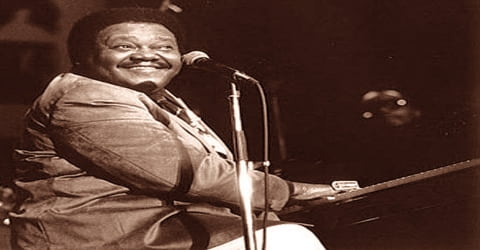
Domino returned to stage on May 19, 2007, at Tipitina’s at New Orleans, performing to a full house. This would be his last public performance. The concert was recorded for a 2008 TV presentation entitled Fats Domino: Walkin’ Back to New Orleans. This was a fund-raising concert, featuring a number of artists; Domino donated his fee to the cause. Later that year, a Vanguard record was released, Goin’ Home: A Tribute to Fats Domino featuring his songs as recorded by Elton John, Neil Young, Tom Petty, Robert Plant, Willie Nelson, Norah Jones, Lenny Kravitz, and Lucinda Williams. A portion of the proceeds was to be used by the Foundation to help restore Domino’s publishing office which had been damaged by the hurricane.
Awards and Honor
In 1986, Fats Domino was inducted into the Rock and Roll Hall of Fame. The following year, he received the Grammy Lifetime Achievement Award.
In 1995, Domino obtained the Rhythm & Blues Foundation’s Ray Charles Lifetime Achievement A
In 1998, President Bill Clinton awarded him the National Medal of Arts. Domino declined an invitation to perform at the White House.
In 2004, Rolling Stone magazine ranked him number 25 on its list of the “100 Greatest Artists of All Time” in an essay written by Dr. John
In 2007, ‘OffBeat’ magazine honored him with their Lifetime Achievement Award. That year, he was also inducted into the Louisiana Music Hall of Fame and the Delta Music Museum Hall of Fame in Ferriday, Louisiana.
In 2015, the song ‘The Fat Man’ entered the Grammy Hall of Fame.
Death and Legacy
Fats Domino died from natural causes on October 24, 2017, at his home in Harvey, Louisiana. He was 89.
Fats Domino’s song ‘Ain’t That a Shame’ peaked at No.1 on the Billboard R&B chart. It eventually sold a million copies and was later included in Rolling Stone magazine’s 500 Greatest Songs of All Time list. His song ‘Blueberry Hill’, which sold more than 5 million copies worldwide, reached the No. 1 spot on the R&B chart and remained there for 11 weeks. It also reached the No. 2 position on the Billboard Juke Box chart and stayed there for two weeks.
Domino was one of the biggest stars of rock and roll in the 1950s and one of the first R&B artists to gain popularity with white audiences. His biographer Rick Coleman argues that Domino’s records and tours with rock-and-roll shows in that decade, bringing together black and white youths in a shared appreciation of his music, was a factor in the breakdown of racial segregation in the United States. The artist himself did not define his work as rock and roll, saying, “It wasn’t anything but the same rhythm and blues I’d been playin’ down in New Orleans.”
Information Source:
